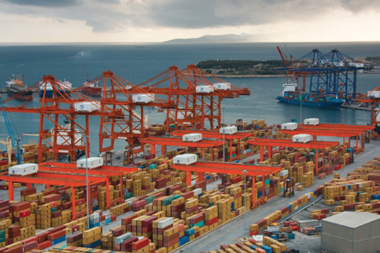APG, ABP’s asset manager, has been joined by the Canada Pension Plan Investment Board (CPPIB) in a Korean logistics joint venture.
The Dutch pension asset manager and Canadian institution will invest $500m (€464m) with logistics developer, owner and operator e-Shang and its subsidiary, Kendall Square Logistics Properties (KSLP).
APG last year paid $650m for a 20% stake in E-Shang, owned by private equity firm Warburg Pincus.
The joint venture, targeting investment-grade assets across South Korea, could double its initial $500m investment capacity.
The aim is to build a 1.5m sqm portfolio, with a focus on the Seoul and Busan metropolitan areas.
Two assets in the Seoul region will be used to seed the joint venture.
Jimmy Phua, CPPIB’s managing director and head of real estate investments in Asia, said the fund’s investment was a “great opportunity to enter the growing and highly sought-after logistics sector” in South Korea.
“Developing logistics facilities in a market like Korea – which is supported by increased trading volume and greater domestic consumption – is an attractive use of capital for a long-term investor like CPPIB,” Phua said.
E-Shang is expanding beyond China, where it holds a portfolio of completed and ongoing projects in Shanghai, Beijing, Guangzhou and second-tier cities.
Its activity in Korea will be managed by the KSLP subsidiary, created by Thomas Nam and Jihun Kang, who previously led ProLogis and AMB, respectively.
Sachin Doshi, APG managing director and head of private real estate investments for Asia Pacific, said “This is an opportune time to enter the logistics sector in South Korea given the compelling fundamentals and supportive government policies for the development of modern logistics warehousing.
“Logistics continues to be a sector of particular focus for APG globally, and this investment consolidates our substantial logistics positions in the Asia Pacific region to an exciting new market that remains severely under-institutionalised.”
As the sector matures in Korea, Doshi said APG expected “significant upside through rental growth and cap rate compression, similar to what we have seen over the years in Japan and China”.











